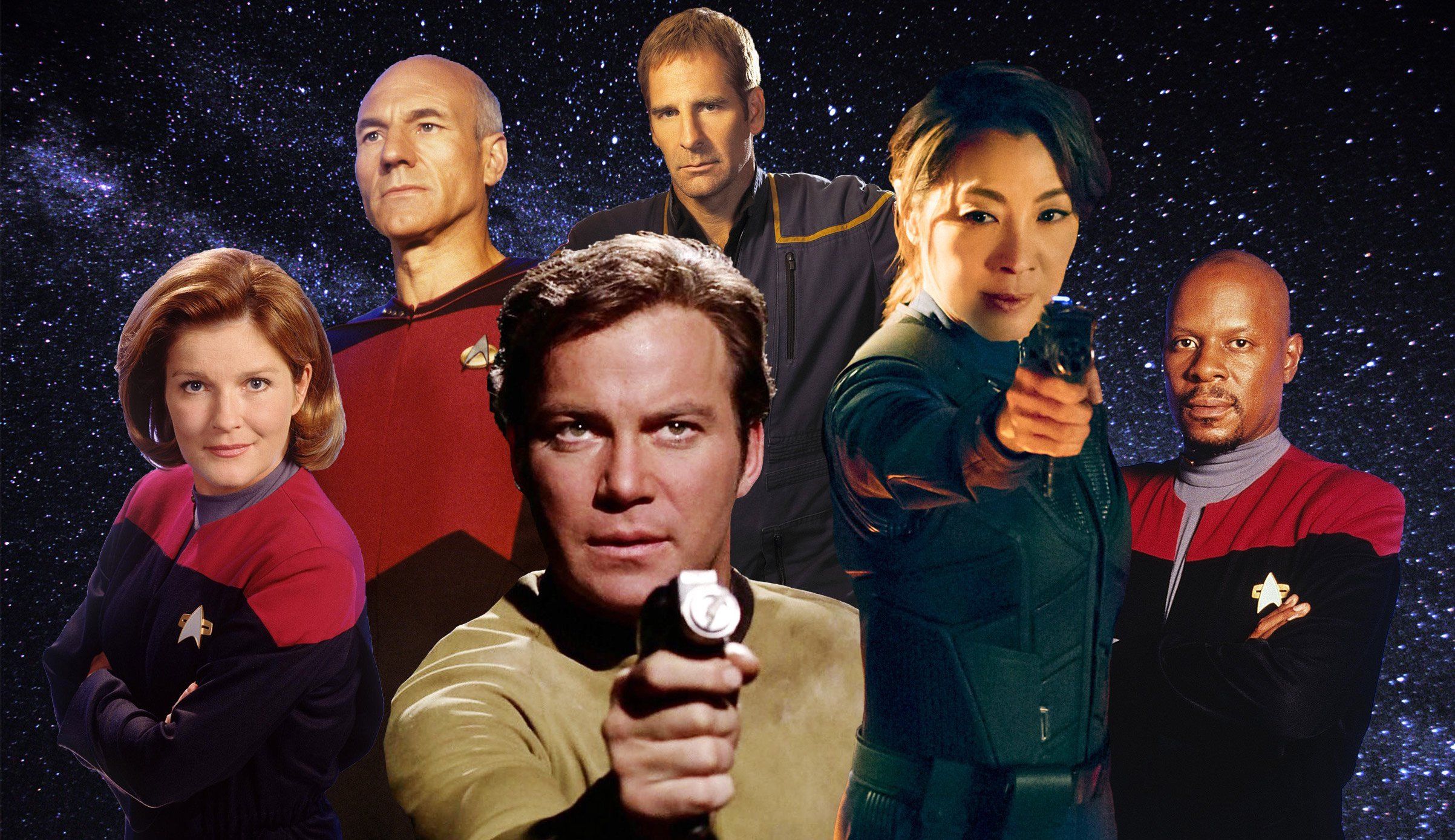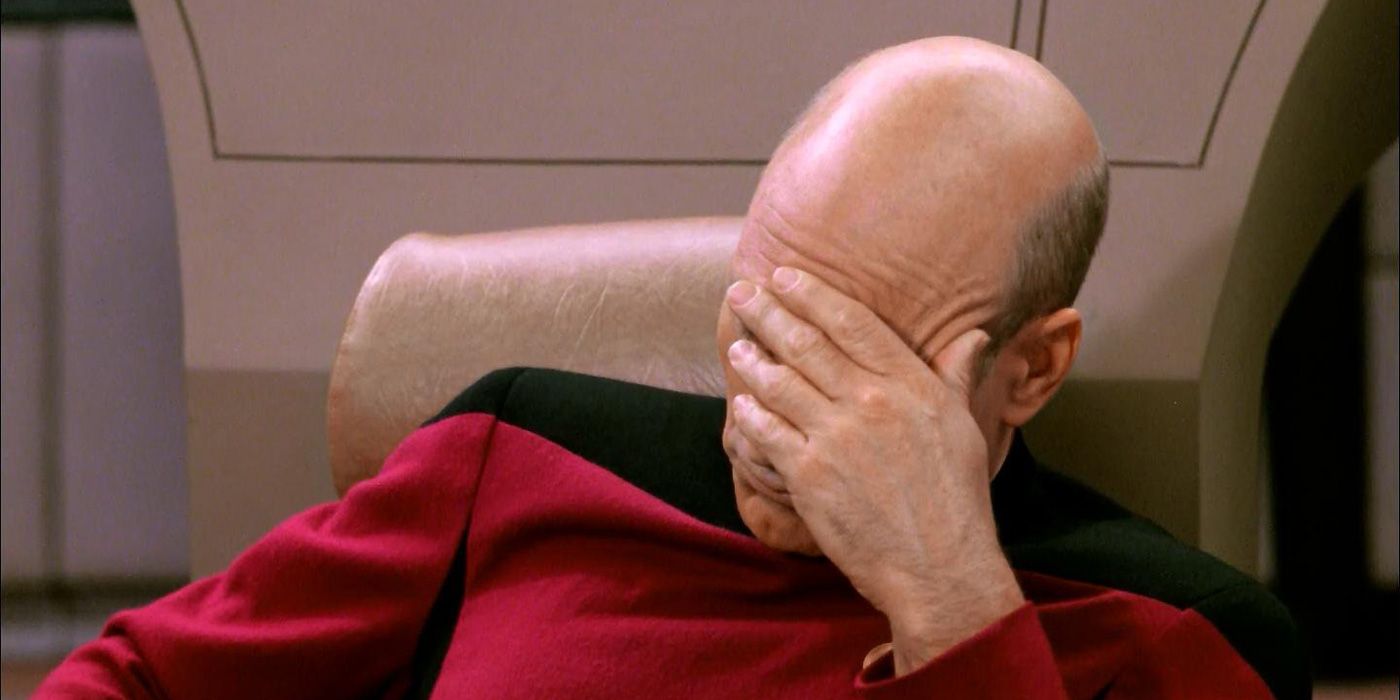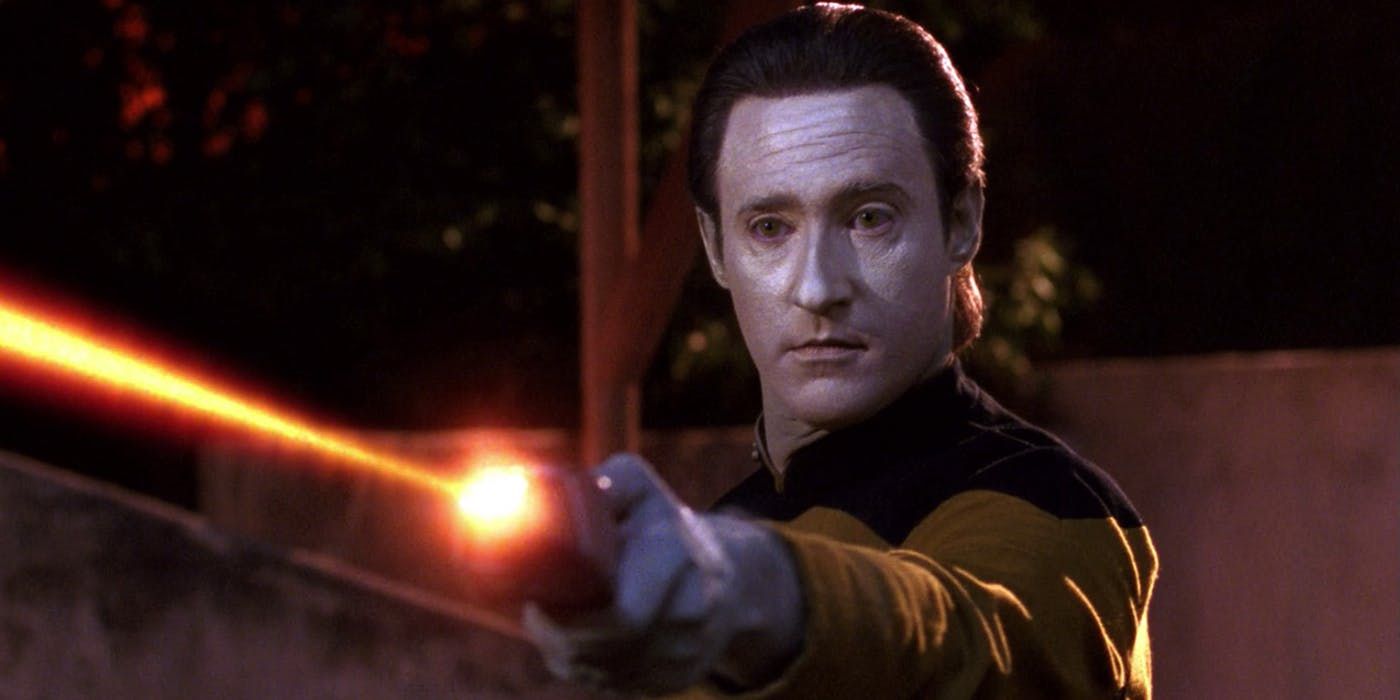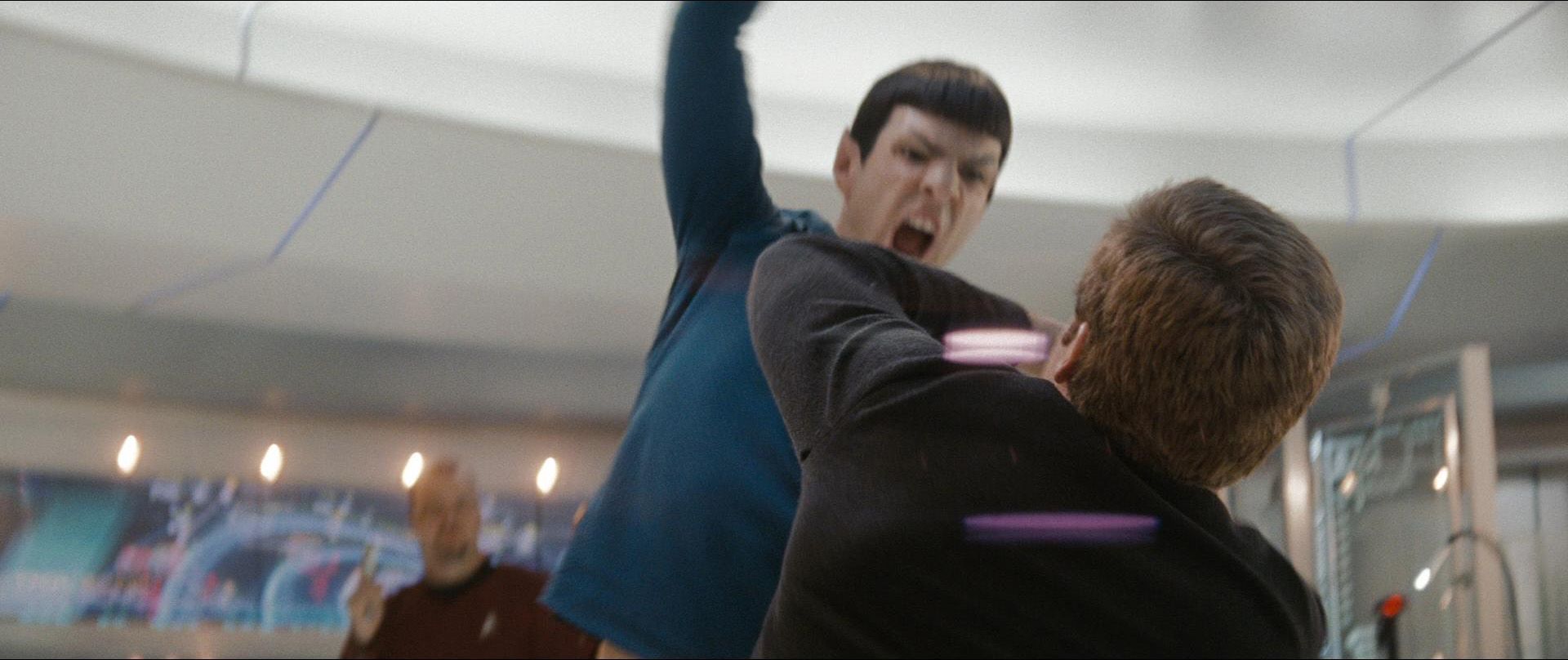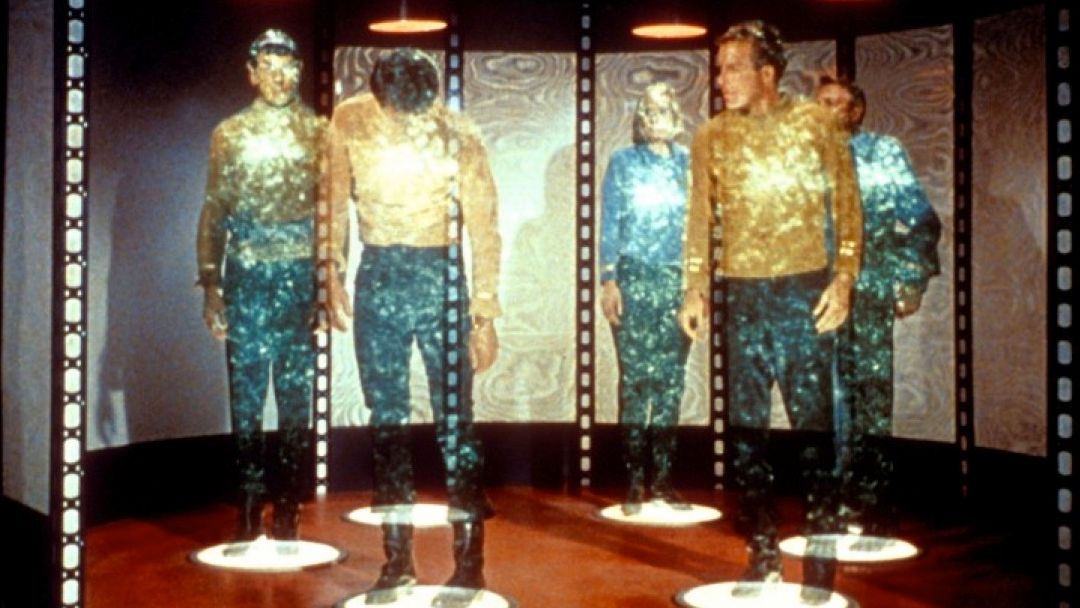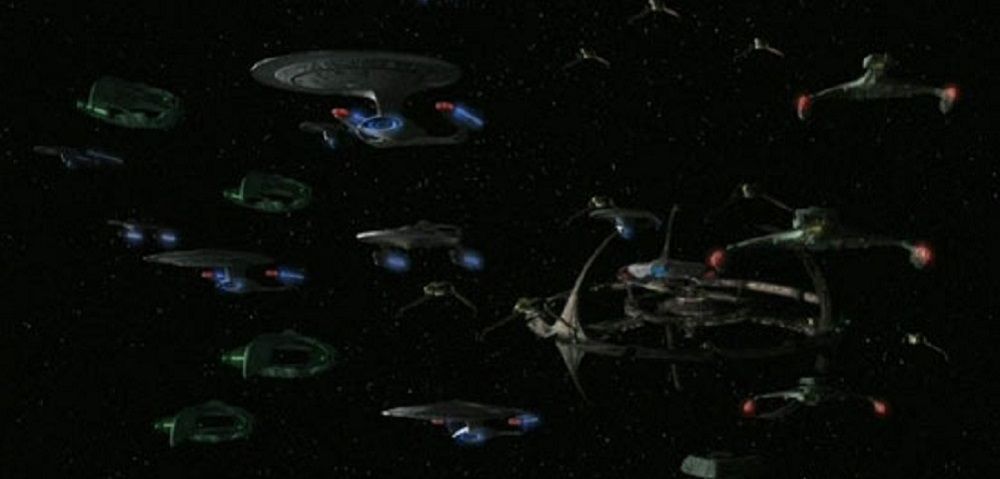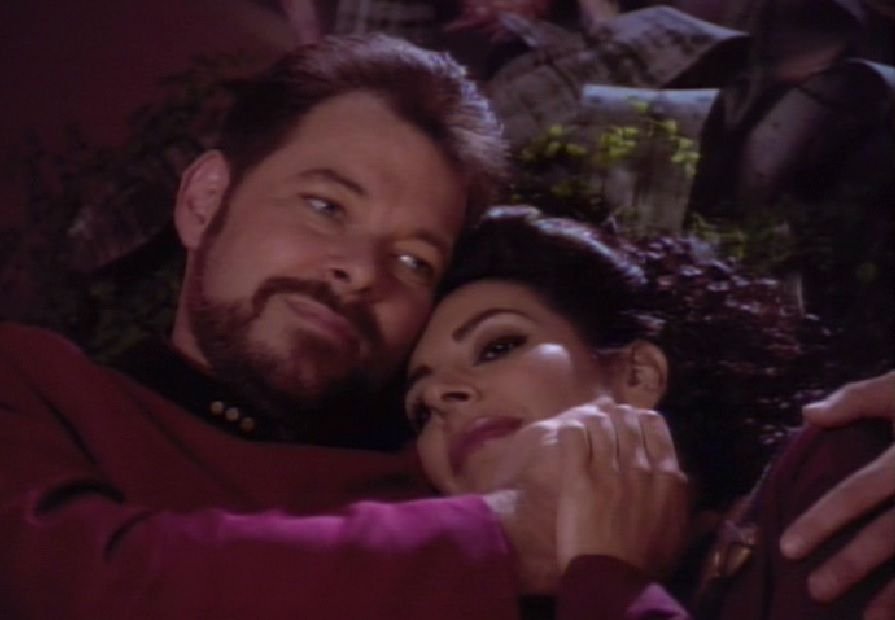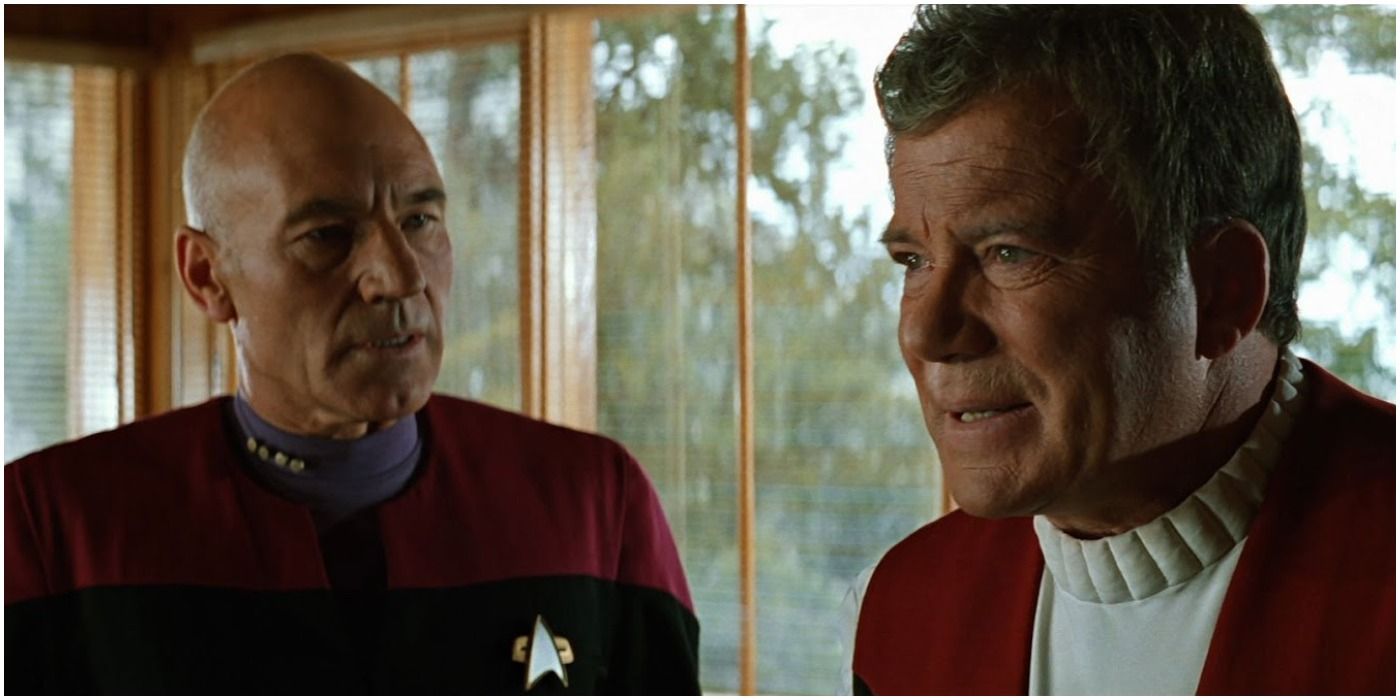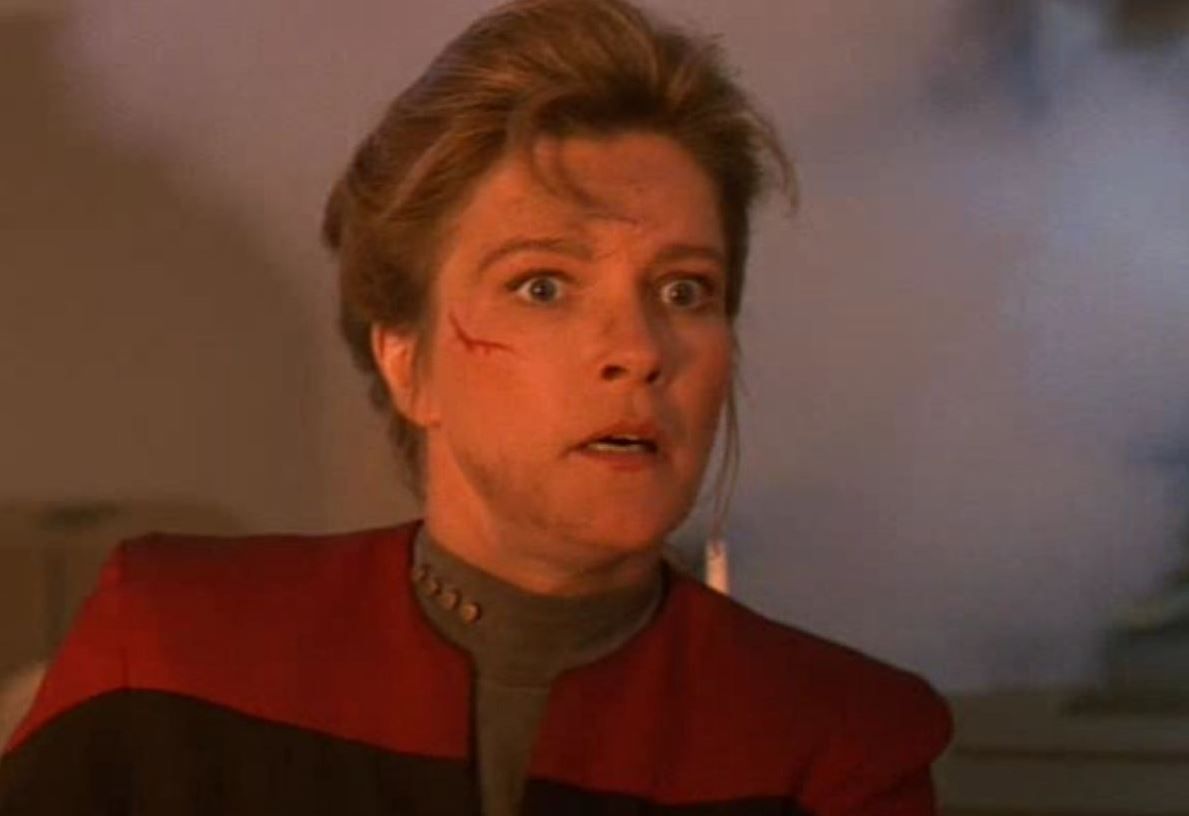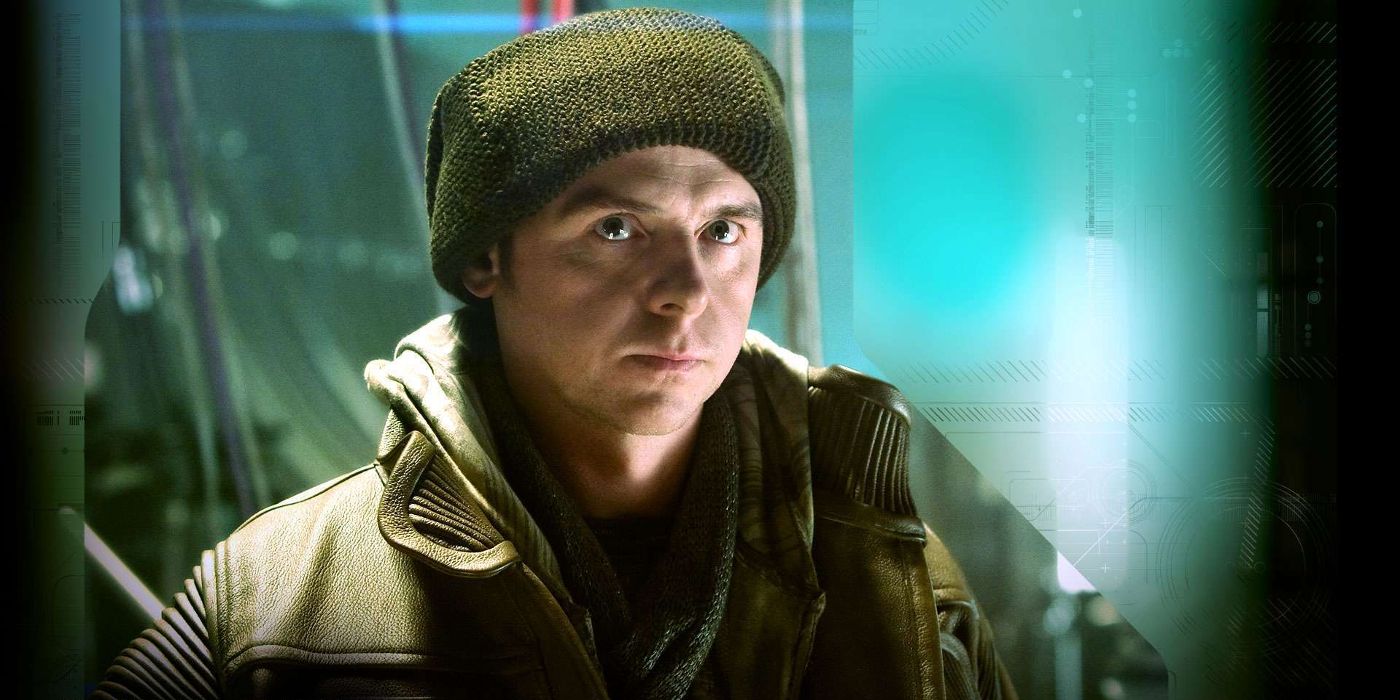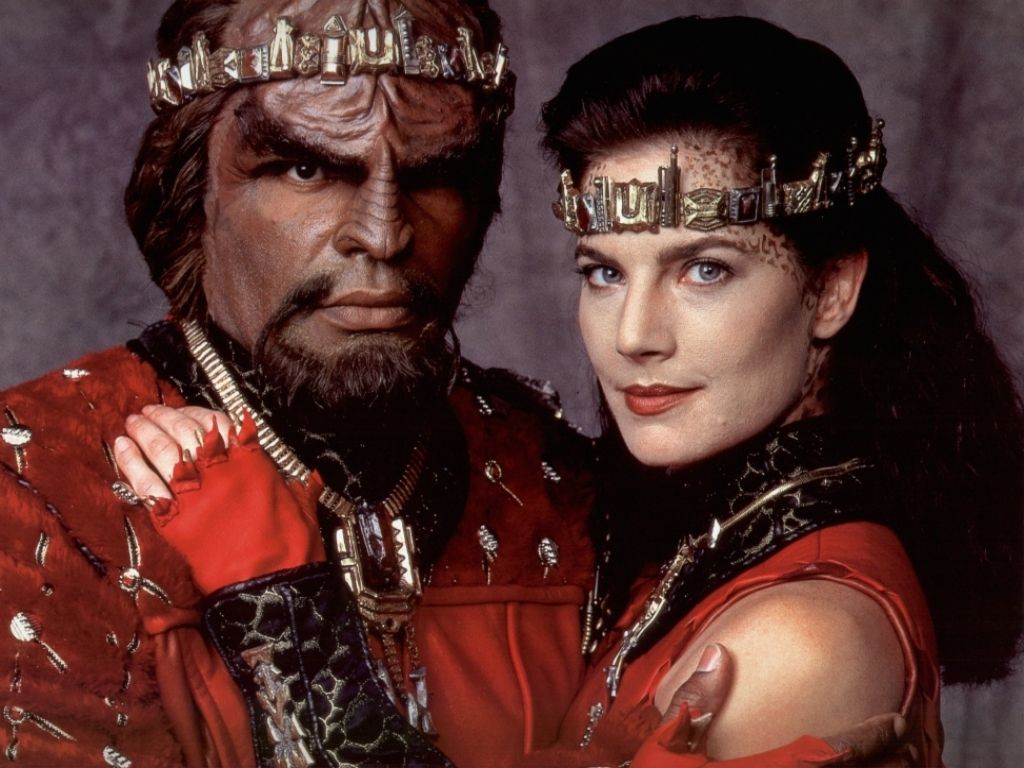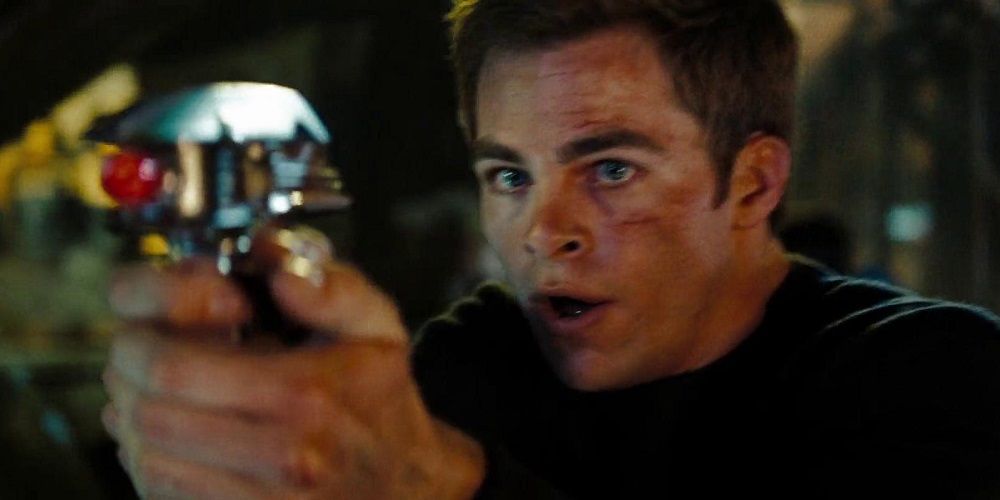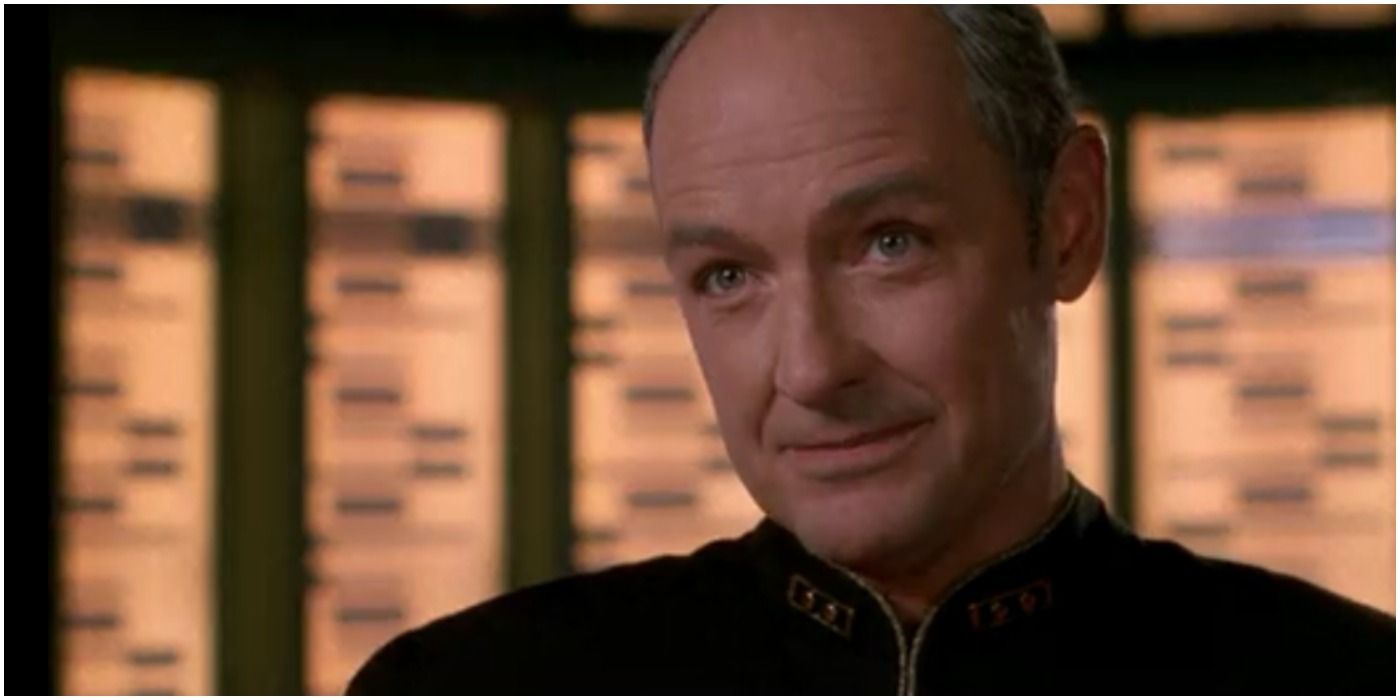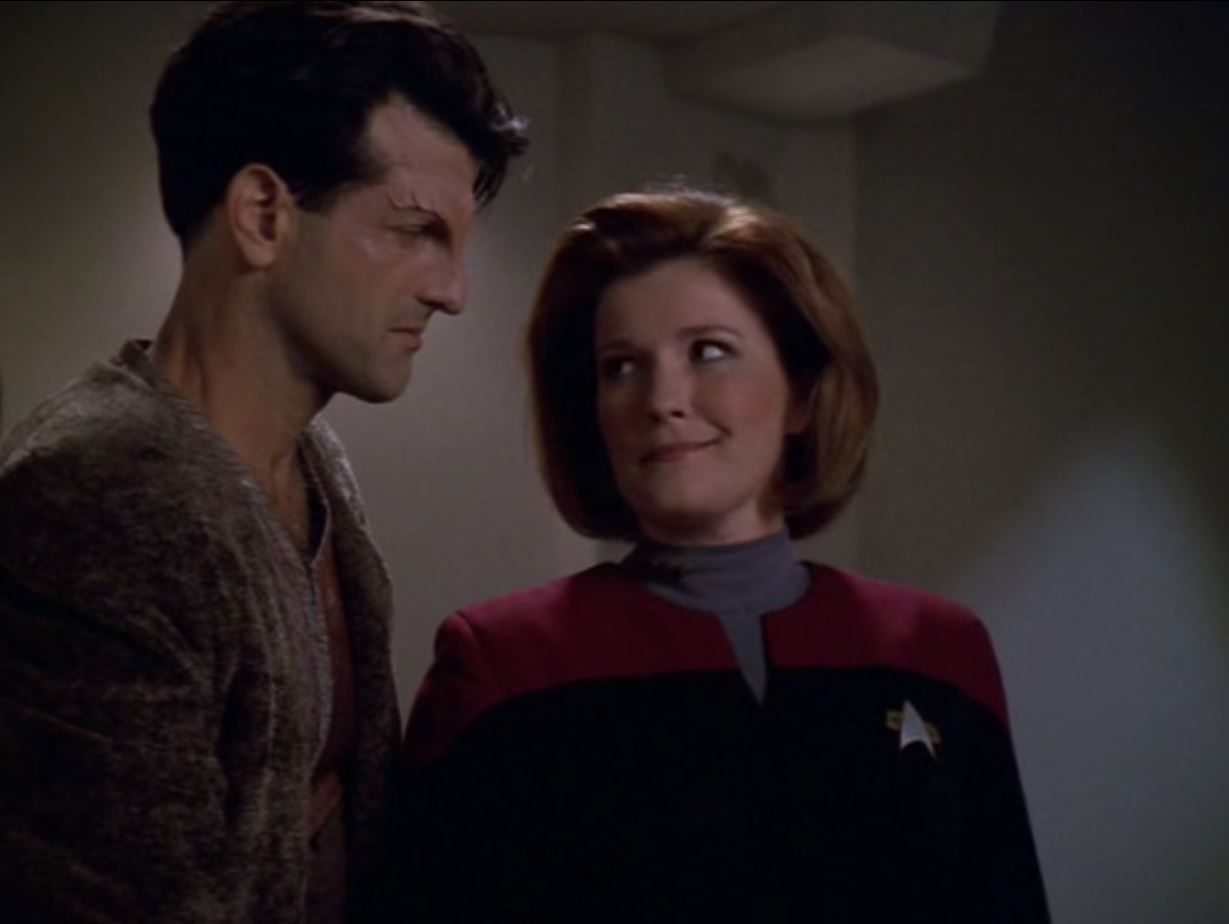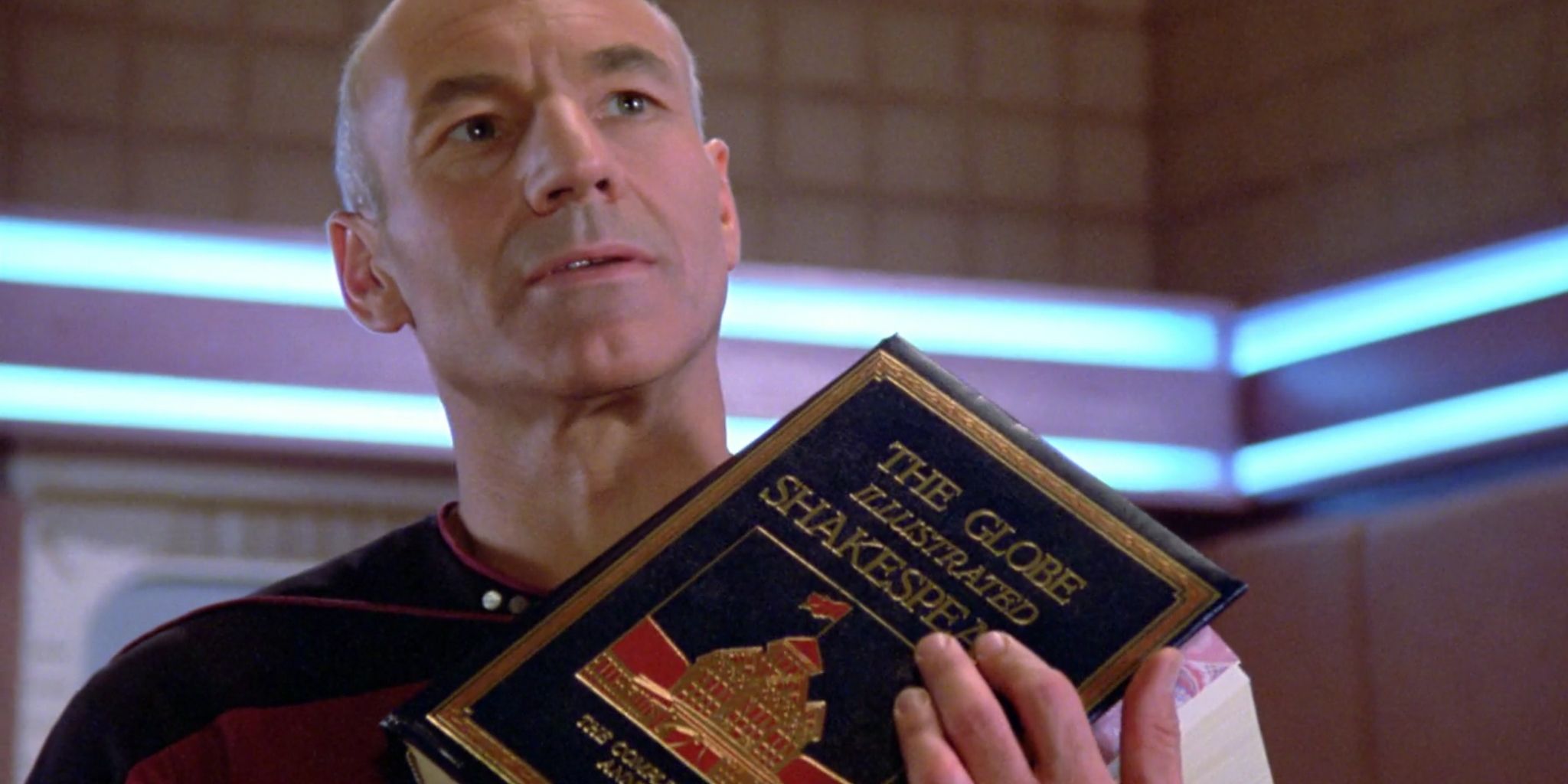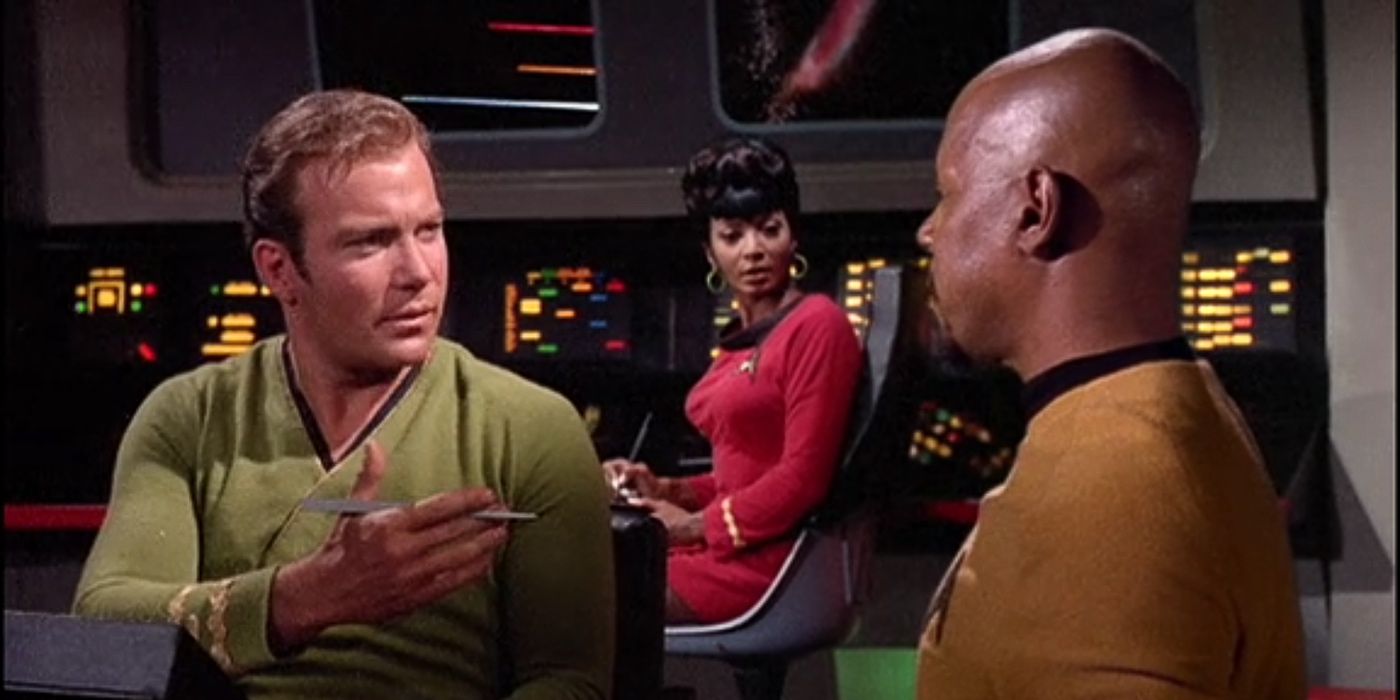For many, Star Trek is the ultimate sci-fi franchise. Expertly combining high-level science fiction, moral complexity, politics, the sense of exploration and, of course, incredible battles and action sequences, Star Trek has one of the most compelling fictional universes in existence. Front and center within the far-future universe of the franchise is Starfleet, which is more-or-less both the government and military of Earth.
With an enormous fleet of starships and countless enlisted members, Starfleet and their mission to “boldly go where no man has gone before” is one of the most well-known elements of the series, and one of the most important in-universe organizations. Like all major organizations, though, Starfleet is filled with a lot of weird rules. And also like all major organizations, there are a lot of rules that are constantly broken.
In our list, we’ve come through countless general orders, regulations, protocols, charter articles, procedures, directives, guidelines and even some overarching Federation laws to bring you the strictest (and strangest) rules available… along with the ones that no one seems to care about.
Some of the major rules for Starfleet personnel might even shock the most hardened of Star Trek fan, though the captains and characters who are regular lawbreakers probably won’t. Then again, there are a few character who typically abide by regulations that surprisingly toss a select few to the wind, so you might be surprised after all.
With that in mind, let’s go to warp speed and tackle the 15 Rules Starfleet Is Forced To Follow (And 10 They Always Break).
Forced to Follow: Capital Punishment Exists For Only One Crime
One of the strictest laws developed within Starfleet was the abolishment of capital punishment. Even on our Earth in the current age, centuries before the events of Star Trek are meant to take place, there is a constant political grappling about the subject.
That said, Starfleet has an exception attached to the taking of lives as a punishment, and it’s legitimately weird: Don’t go to Talos IV. Should you break that simple order, you’ll face much worse than a court martial. The reason behind this is that the Talosians have immense hallucinatory powers, and they have chosen to remain isolated in order to protect other species from their destructive capabilities.
Forced To Follow: Yellow Alert Is Mandatory When Targeted By Lasers
In The Next Generation episode “The Outrageous Okona”, the Enterprise is targeted by laser weapons. Regulations demand that Yellow Alert must be sounded, and shields must be raised. This amuses Picard and his crew, considering the fact that laser weapons wouldn’t even penetrate their navigational shields. Picard even jokes that the regulation is terribly old, and then sarcastically adds that they should prepare for the possibility of surrendering to their would-be aggressor.
The best part is that they actually followed the regulation, regardless of its obsolescence, despite the fact that the Enterprise could withstand an entire legion of laser-equipped vessels without a single scratch to its hull.
Always Break: Intelligent Life Cannot Be Eliminated
Well, this is awkward. Starfleet Order 2 is a regulation that states that the taking of intelligent lifeforms can be tolerated. We guess Starfleet doesn’t take this seemingly serious rule too seriously.
In all fairness, there are countless situations within the various plots and series of Star Trek where the members of Starfleet are left with essentially no other choice than to defend themselves or eliminate a direct threat. It’s just strange and kind of amusing that a no nonsense, plainly stated rule like this exists, and that it’s generally never cited.
Force To Follow: Four Specific Artifacts Require Immediate Confiscation
This is one incredibly and oddly specific rule. General Order 16 states that any Starfleet ship that detects an energy signature emanating from one of the four Malkus Artifacts are required to immediately seek out and confiscate them.
For those who haven’t read the novel The Brave and the Bold, the Markus Artifacts are ancient and extremely powerful weapons leftover from a long extinct civilization. When framed like that, the rule makes total sense, but then again, why specifically the Malkus Artifacts and not any other of the countless, long-abandoned super weapons?
Forced To Follow: Starfleet Can Influence Civilian Businesses
Starfleet is seen a utopian civilization, with its citizens being incredibly happy, with basically all of our current day woes ceasing to exist under its watchful guidance. That said, Starfleet has a dark side, and while we’ll talk a far worse element of it later, this one is still pretty seedy.
Essentially, Starfleet can shut down a business it doesn’t like, for basically any reason. In Star Trek’s case, Sisko cited this regarding Quark’s bar on Deep Space 9, though he only used it as a threat to keep the Ferengi as close to the law as possible.
Always Break: Captains Must Resign If Emotionally Compromised
This particular regulation was brought to light with an incredibly effective demonstration in the 2009 Star Trek movie reboot. Kirk pushed Spock, the acting captain, to an emotional breakdown in order to seize control of the Enterprise and lead the crew to victory. So we’ve seen this rule in action, but we mostly don’t… even when we totally should.
Moments where it should have been used include any time Picard needed to come face-to-face with the Borg, or perhaps with the anti-Klingon Kirk, or (especially) when it came to Sisko engaging in political espionage against the Dominion after being pushed to the edge by the loss of Federation lives.
Forced To Follow: People Cannot Be Removed From A Planet Against Their Will
While not a specific rule, there are multiple regulations related to the act, and it’s simultaneously reasonable and horrifying (specifically because it shows just how much power and precision a starship is capable of.) What’s most interesting about this series of rules is how morally gray they are.
For example, in the TNG episode “Angel One”, Riker was hoping to rescue a group from being executed on a planet’s surface, yet the group refused and he wasn’t about to violate the regulation. So even when it’s the right thing to do, you still shouldn’t do it.
Forced To Follow: The Catastrophic Response Code
This one is more of an interesting rule than anything particularly absurd, but it’s worth talking about nonetheless, considering how dire the tactical situation would need to be for it to even be followed. In short, should every last form of communication fail to establish contact between Starfleet and Federation outposts, any and all personnel are to immediately rendezvous at Starfleet Command.
This is an interesting scenario for some apocalyptic event, and can’t possibly begin to imagine what the cause of such an enormous collapse would be, but we’d love to it play out with all its drama on the big screen.
Always Break: Colleagues Can't Be In Relationships
Of all of the Starfleet rules and regulations that are constantly broken, this one seems like it never even existed in the first place. We’ve seen countless relationships amongst crewmembers, and not only where they fully accepted, they were totally encouraged.
Worf and Dax come to mind (as does their marriage), but there’s also Riker and Troi and even Data when he was exploring dating. To be fair, this particular rule was cited during Enterprise, a prequel, so it’s possible that it was appealed by the TNG era. However, still, you never know…
Forced To Follow: Starfleet Reserve Activation
It doesn’t matter if you’re the most famous captain in all of Starfleet, and are way over the hill living on a farm with some horses; if Starfleet needs you to serve, you’re serving, retired or not.
This “seldom used” clause was activated in Star Trek: The Motion Picture in order to draft Bones back into the game, and it makes sense to have if a given emergency was so immense that any and all hands were needed, especially those of a legendary stature. Also, while it’s true that Picard didn’t entice Kirk with this clause in Star Trek Generations, he might as well have.
Forced To Follow: The Chain Of Command Is Based On Ships, Not Rank
This is a curious tactical regulation, and although we can see the reasoning behind it, it also raises a flurry of questions. Simply put, if multiple starships are engaged in a battle and the leader of the fleet is incapacitated or destroyed, the next ranking officer isn’t necessarily the next in line for command.
Instead, the head of the ship with the greatest tactical superiority is given command of the group. So even if you’re an admiral on a shuttlecraft, you might lose command to a cadet on a Galaxy-class vessel.
Always Break: The Transporter Can't Be Used During Warp
This was part of a major plotpoint in the rebooted Star Trek films, where it was not only against the rules to attempt the use of a transporter during warp, but also illegal. That didn’t stop one Montgomery Scott from doing it anyway, though… after he got in serious trouble for attempting it and failing miserably, of course.
In fact, Scotty would master the technique to the point that the regulation would actually be altered, since he made it possible to perform the action safely and efficiently, leaving the law as totally obsolete.
Forced to Follow: Medical Permission Is Needed For Interspecies Relationships
Now, honestly, it could be argued that this is one of the most broken rules in the franchise (particularly if we consider Kirk’s multiple… rendezvous), but if we take a step back and fill in the blanks, it’s clear that this rule is put into effect constantly, but we just don’t see it happen on screen.
With different physiologies of multiple alien species inter-mixing, it’s important to make sure that being with your partner isn’t going to put you in the hospital. With that in mind, it’s obvious that couples like Worf and Dax had to consult Bashir before they engaged in Blood Wine-fueled antics.
Always Break: Captains Must Always Have Security
Easily one of the most wantonly broken rules in the entire franchise, Captains are supposedly required to have security with them any time they enter a potentially hazardous area or situation.
We can’t even list the amount of times this straight up never happened, because it’s essentially every last episode of every single series. The better question would be how many times was this rule actually followed? We imagine it’s a little less than a handful… and even that estimation might be far too generous.
Forced To Follow: Formal Correspondence Must Be Acknowledged
One of the more amusing Starfleet rules is that Captains and officers are required to acknowledge and respond to any formal correspondence. Hypothetically speaking, let’s say you’re Captain Picard and you just made an incredibly gut-wrenching decision and wanted to be left alone to grieve and enjoy your tea, but some Admiral is calling you tell you about this new painting they just acquired.
You better answer it, because if you don’t, you’re in trouble. That’s the law, and it’s serious business. Disregarding our goofy hypothetical situation, this rule obviously has a legitimate purpose, but it’s still a little funny.
Always Break: Those Accused Of Crimes Cannot Be Questioned
To be fair, it’s not that they "can't" be questioned, but they can refuse the process, but it’s still a weird rule, and one that’s hardly (if ever) used on screen.
Somewhat mirroring the rights of our current era (where the accused is allowed to the option to remain silent in order to avoid self-incrimination), this particular directive permits the accused to answer any questions… and yet, we’ve generally seen the accused in every last season completely cooperate (whether they were truthful or not.) We suppose we’re glad that the option exists, but we’d be shocked to see anyone use it, minus its one appearance in Voyager.
Forced To Follow: Strict Punctuation Rules Exist
In a universe where ships can travel at a rate far beyond the speed of light, weapons are impossibly devastating, and genuine food can be created on a whim from a box in the wall, you might be surprised to learn that Starfleet has some pretty serious stances on how to properly punctuate official reports.
In truth, they are merely guidelines, but it’s beyond amusing to think that in an era where captains and officers regularly make decisions that require the utmost understanding of physics, mathematics, diplomacy and morality, that Starfleet still found it necessary to reign in those who might be a little lazy with their report writing.
Always Break: Captains Can't Lead Away Missions
Now we’re getting down to the rules that are broken at an absurdly high rate that Starfleet is better off erasing them from the law books. We’ve known since the very start of the franchise that a Captain leading an away mission is a big no-no, but the problem goes even further than that.
Not only are Captains forbidden from leading these excursions, but they shouldn’t be going on them with their first officer in tow, either, and yet… well, the amount of times both Kirk and Spock were on a dangerous planet’s surface says all we’d need to say about how often this regulation is followed. There are a few occasions when this rule is followed, however, such as when Commander Riker tells Captain Picard that he refuses to let Captains go on away missions in TNG's "Encounter At Farpoint".
Forced To Follow: Ships Self-Destruct If Everyone On Board Perishes
This is a rather wild rule, but it’s far less surprising when given appropriate context. If the entire crew of a Starfleet vessel either passes away or abandons ship, the computer will start an automatic self-destruct after 24 hours of lifelessness.
While this could come in handy in stopping enemy forces from acquiring valuable technology and secrets, the actual purpose of this process is to eradicate what is a presumably dangerous and fatal disease, along with preventing others from investigating and becoming infected themselves.
Always Break: The Temporal Prime Directive
Time travel is one of the most overused concepts in Star Trek. It’s been in nearly every series at least once, and even the feature movies. Considering how dangerous the side effects of time travel can be, strict laws regarding it are only logical. It's too bad no one follows them.
Put as simply as possible, the Temporal Prime Directive forbids Starfleet personnel from interfering with historical events, but it also requires them to prevent any historical alterations. Janeway breaks this Directive multiple times, and it’s been suggested that Picard has, too. Also, don’t even get us started on Sisko; the actual time police had to investigate him for what he pulled.

